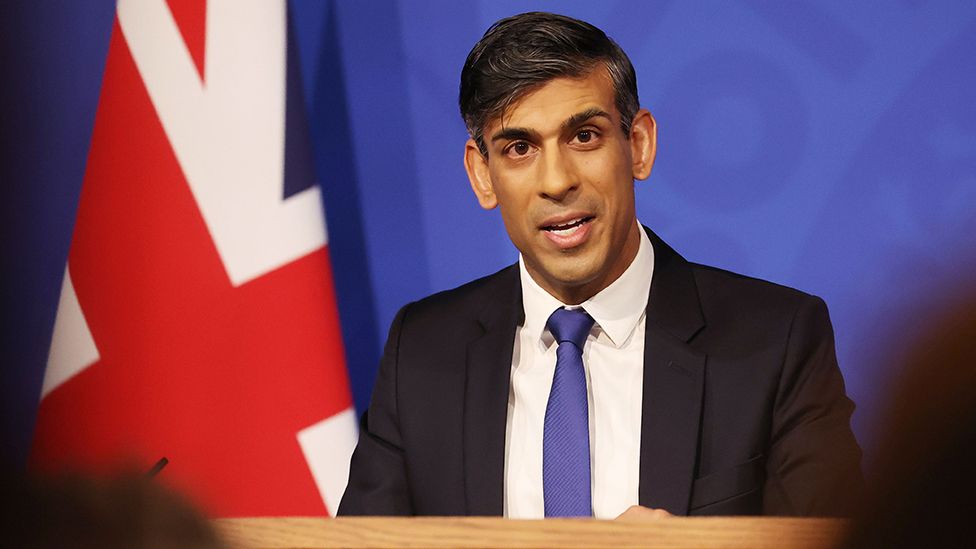British Prime Minister, Rishi Sunak, has remained adamant on the controversial migration deal, promising to start sending asylum seekers to Rwanda within 10 to 12 weeks.
This would happen after parliament passed long-awaited legislation that would make it easier to remove people who come to Britain illegally.
The Supreme Court ruled the policy illegal in November, but Sunak says the new law is more important than any legal issues. This is how he plans to keep his promise to stop people coming across the Channel in small boats.
Sunak also said he would stop people from taking small boats across the Channel, which is a dangerous route that goes for about 20 miles (32 km). Last year, more than 29,000 people came this way. In 2022, a record 45,775 refugees came this way.
For many Britons, leaving the European Union in 2016 meant taking back control of Britain’s borders and stopping people from freely moving into the country but reports show the situation remains a problem. There have been 6,265 people found so far this year, which is almost 25% more than the same time last year.
Former Prime Minister Boris Johnson agreed to the plan in April 2022. It sends anyone who came to Britain illegally after January 1, 2022, to Rwanda, which is about 4,000 miles (6,400 km) away.
Nevertheless, European courts stopped the first flight of people being sent back to their home countries in June 2022. The Supreme Court then supported a decision that the plan was illegal because migrants could be sent back to their home countries or to other countries where they would be mistreated.
Sunak said that the government had reserved commercial charter planes, ready an airfield, and trained staff to take migrants to Rwanda. He said that the first flight would leave in 10 to 12 weeks, but his party thinks that the new law doesn’t go far enough to stop asylum seekers from being able to appeal against being sent back to their home country.
Because of the law, British courts won’t be able to decide if Rwanda is safe, but they might have to decide on specific cases on their own, though only for very narrow reasons.
“If it ever comes to a choice between our national security — securing our borders — and membership of a foreign court, I’m, of course, always going to prioritise our national security,” Sunak said.
Britain has already paid Rwanda more than 200 million pounds ($304 million), and it could cost more than 600 million pounds to resettle about 300 people. At this point, about 50,000 people could be sent there, but it’s still unclear how many people Rwanda can hold.

